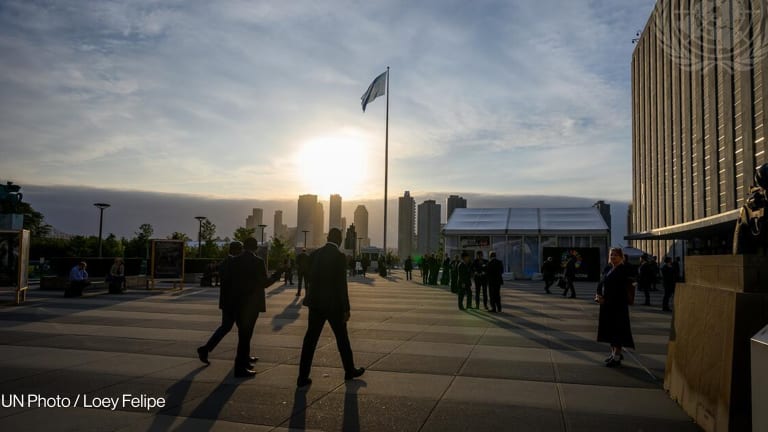
Health ministers from the G-7 group of nations adopted a pandemic pact during a two-day meeting in Berlin that ended on Friday. The agreement aims to improve pandemic surveillance and identification systems globally and establish a mechanism for a swift, coordinated response.
The must-read weekly newsletter for exclusive global health news and insider insights.
The ministers committed the G-7 to three more meetings in the second half of this year, bringing in the World Health Organization and other partners to establish details of structures for surveillance and response. The third meeting will be dedicated to establishing a road map for implementation.
Already the ministers have identified the WHO Hub for Pandemic and Epidemic Intelligence in Berlin as a focal point for the endeavor and pledged to educate and train more experts globally to improve local surveillance.
In reaching the pact, German Health Minister Karl Lauterbach said the health ministers underlined that “this [COVID-19] pandemic will not be the last. We must take precautions today to avoid a new surprise tomorrow.”
A two-day meeting of G-7 development ministers opened Wednesday in Berlin, which allowed health ministers to take advantage of the concurrence and host a joint session Thursday focused on access to COVID-19 vaccines, therapeutics, and diagnostics, as well as strengthening pandemic preparedness in low- and middle-income countries.
The meeting wrapped up without any new initiatives or funding commitments, but it did signal that equitable access and preparedness for future events are likely to remain high on the agenda of G-7’s upcoming summit in June.
Meanwhile, European Union officials used the joint conference to announce plans to craft a new EU global health strategy. In a statement, the commissioners said the goals of the plan included strengthening health partnerships across the world, including boosting local health manufacturing capacity, and a focus on expanding “one health” interventions, “recognising the intrinsic connection between the health of people, animals, plants and their shared environment.”
The development ministers’ meeting took on a series of overlapping crises — including climate change, COVID-19, and conflict — but food insecurity emerged as a major concern. The World Food Programme has warned that 48.9 million people are on the brink of famine, a number that has skyrocketed as the Ukraine conflict has limited food production and sent global food prices soaring.
In a press conference, German Development Minister Svenja Schulze offered clarity on the Global Alliance for Food Security, which was officially launched at the meeting. She said that it was meant to oversee “rapid and forward-thinking coordination.”
“On the one hand, we do not want one developing country overwhelmed by a multitude of donors and, on the other hand, a country that receives no support at all,” she said.
In addition, the ministers called for a focus on food systems at the 27th United Nations Climate Change Conference, scheduled to begin in November in Egypt.









